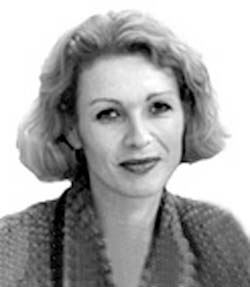Susanne NIES : “For Sarkozy, Ukraine is a European country”

The newly-elected president of France, Nicolas Sarkozy, has started to fulfill the duties of head of state. Will he manage to keep his pre-election promises and transform France and the European Union? Are there any grounds for some observers to assert that Sarkozy will resemble President George Bush or “Iron Lady” Margaret Thatcher? The answers to these and other questions are revealed in The Day’s exclusive interview with Susanne NIES, the director of international programs at the Paris-based Center for International Studies and Research (CERI). Nies is a long- time student of the European Union, transatlantic relations, the countries of Central and Eastern Europe, the Commonwealth of Independent States, and the Baltic countries.
What is your opinion of Sarkozy’s ability to transform France in particular and the European Union in general? Will the majority of the French people support his intention to “shake up” France?
“There could be a lot of surprises in France. If Mr. Sarkozy has been considered right of the right, a very conservative politician, the negotiations concerning his government, termed an “open government,” are really surprising for many observers. Thus, he wants to include prestigious and popular politicians from the left, like Kouchner or Vedrine, in the Ministry of Foreign Affairs. This would really be a precedent: a winning candidate includes those who lost. For sure, this strategy is already oriented toward the parliamentary elections in June. Sarkozy wants to avoid further cohabitation, the left winning, and to forge a united and strong government and majority. Anyway, today the left is in a rather disastrous situation: Sarkozy’s surprise strategy on the one hand, and Mr. Bayrous’ center party project (the new Democratic Party) as well as the result of the elections.
“For the EU, Sarkozy announced during the television debate with Royal that he is in favor of a political EU, which he never said before. Mrs. Merkel has already announced a revised project for June. So, there should be a breakthrough rather quickly.
“Concerning enlargement, Mr. Sarkozy completely rejects the idea of Turkey getting into the EU, and he is reluctant concerning other enlargements. He is likely to be in favor of an EU of concentric circles — the Schaeuble-Lamers project of the 1990s — and less in favor of a big EU without a lot of power.”
Many observers believe that Sarkozy is similar to Bush and Thatcher. Some observers have even called him “Thatcher in trousers.” Do you see any similarity between Sarkozy and Bush/ Thatcher?
“There is a misperception concerning Thatcher. Sarkozy is in favor of Bush as much as Merkel was in 2003. But the US is awaiting the presidential elections in 2008, and public opinion in France is not in favor of too close a relationship with the US. A radical change seems to be unlikely.”
Do the friendly relations between Sarkozy and Bush mean that France will become as close an ally of the US as the UK is? Can France then influence US foreign policy in some way or share American views on human rights as strongly as the US does?
“I do not think so. I think that Sarkozy is going to support Merkel’s project of a transatlantic market — thus economic cooperation, less political.”
How may relations develop between Sarkozy and Merkel? Will France and Germany remain the engine of Europe as they have been until now? Can they both agree on an EU mini-treaty, which Sarkozy proposed last year?
“The term “mini-treaty” has been withdrawn in recent days. Instead, Merkel is talking about a revised treaty project. That is the same thing, with a different political marketing. If that works out, Germany and France will be back as the engines of Europe.”
Does Sarkozy’s statement on the need to establish the borders of Europe mean that Ukraine may not become a member of the EU in the future?
“He is arguing geographically. In the long run, Ukraine will become a member. But Sarkozy will be long gone. He opposes the entry of Turkey, not Ukraine. Ukraine for him is a European country, Turkey is not.”
In this case, what will France’s policy be toward Ukraine within the framework of bilateral relations and the EU?
“The Russia relationship will surely have an impact on the Ukraine relationship. Energy is very important. Any government in Ukraine should be an active partner in the energy issue, as well as in many others.”
Can the privileged relations of the EU with its neighbors, which Sarkozy recently mentioned, mean the possibility of concluding an Association Agreement with the EU?
“It is difficult to remodel the EU on a two-speed EU. That is Sarkozy’s idea, but its implementation is very difficult, if not impossible, because many countries who are now members of the EU would oppose it. A privileged partnership could be modelled on the relationship the EU has with Norway, Switzerland: a common market without participation in political structures.”
Can you explain Sarkozy’s statement that Russia makes him nervous? Does it mean that Sarkozy will not follow Chirac’s policy toward Russia and will not build Franco-Ukrainian relations as subordinate or dependent in some way on Franco-Russian relations?
“I would expect Sarkozy to follow Merkel and reject Putin, who was considered so much a partner by Schroeder and Chirac. The phase of the “Berlin-Paris-Moscow axis” is finished, but it depends on political events, especially foreign policy for sure, but also energy, if the relationship becomes very close again. At the moment, Kosovo, Iran, and the Middle East are the most important issues on the agenda. The double-election that will take place next year in the US and Russia next year are also very important, for sure.
Best from Paris, Susanne.”






